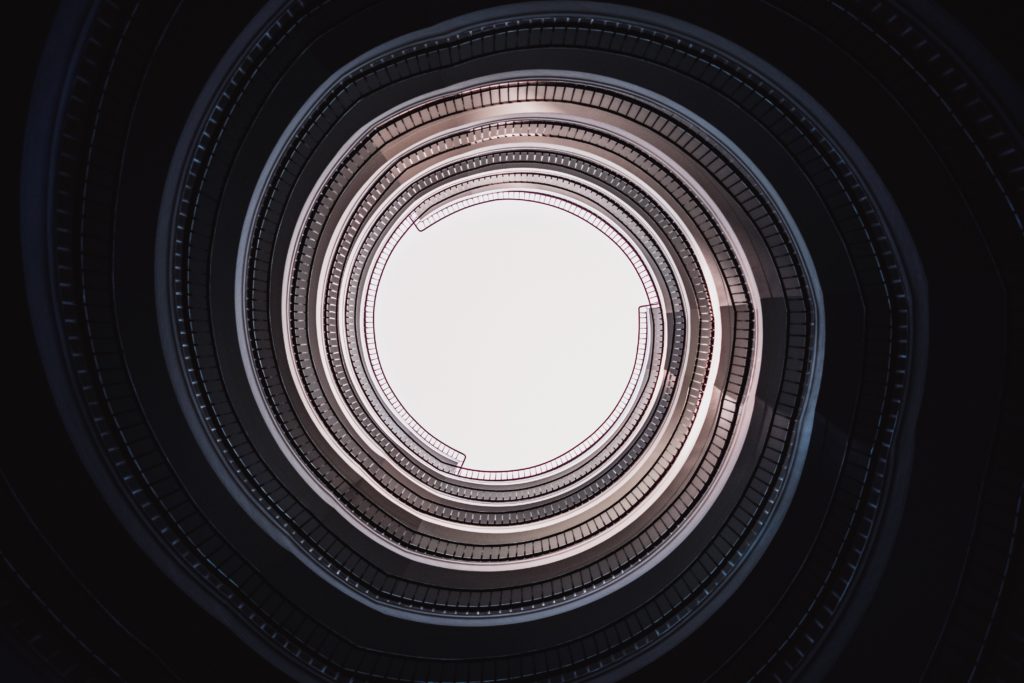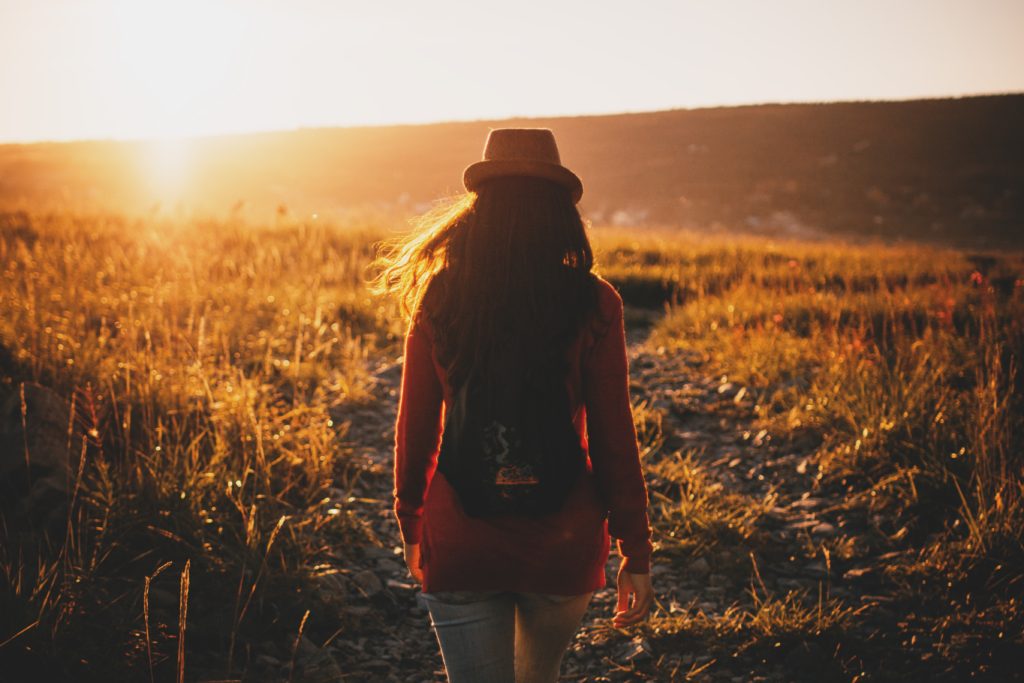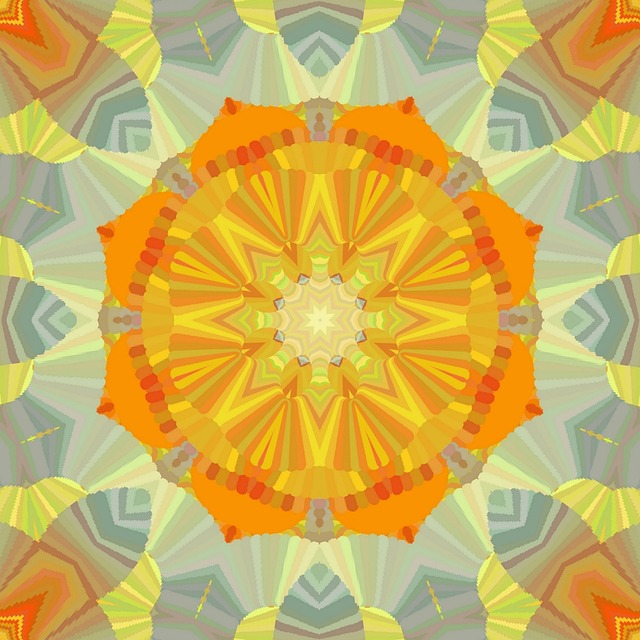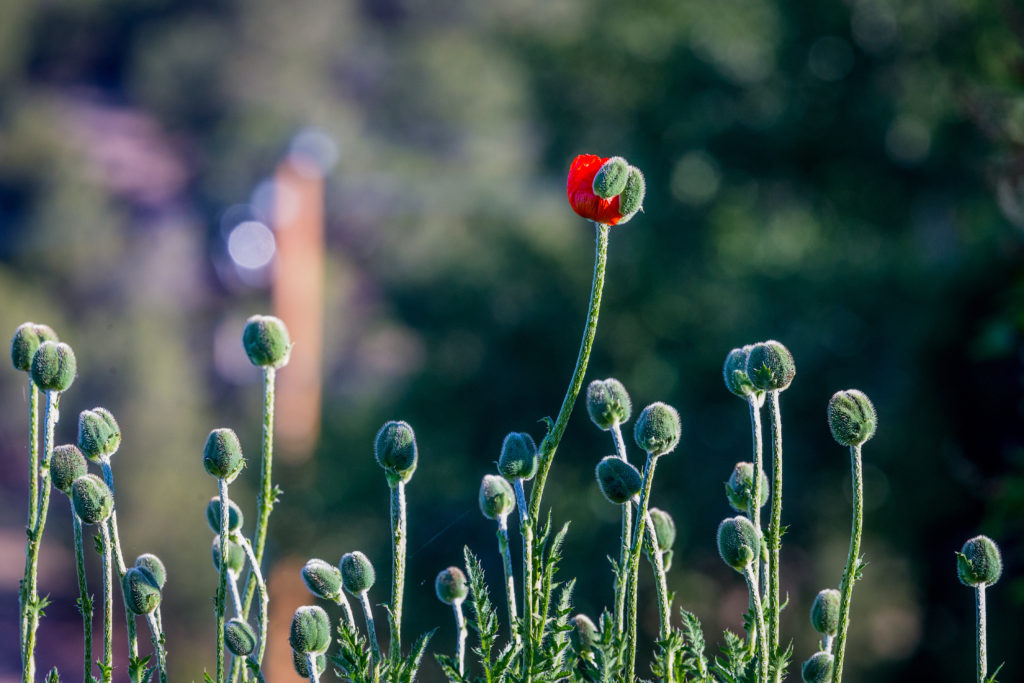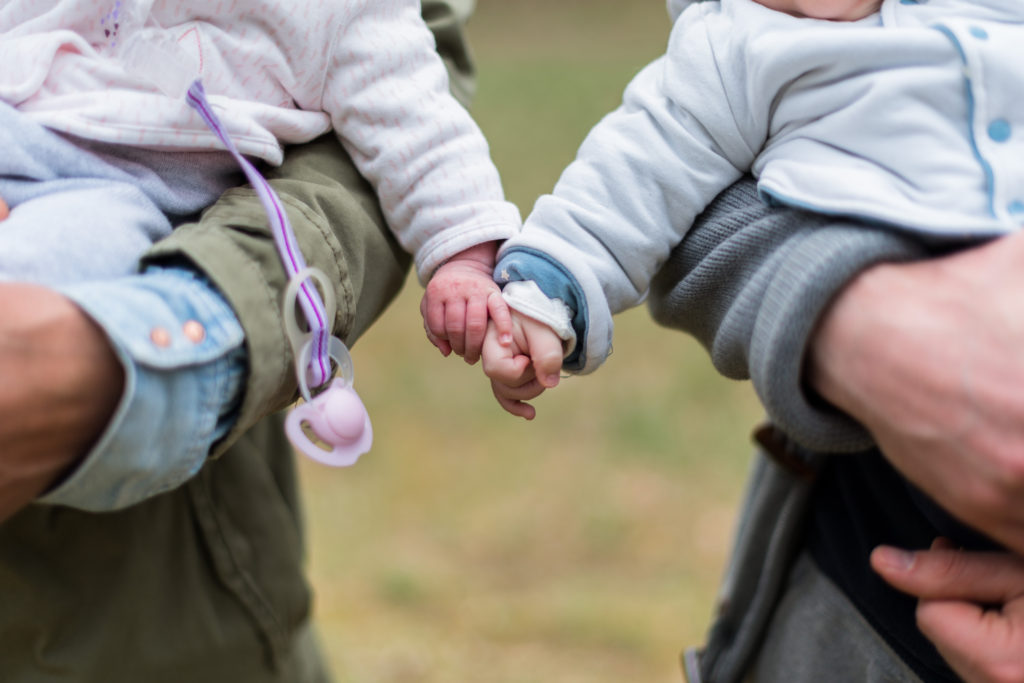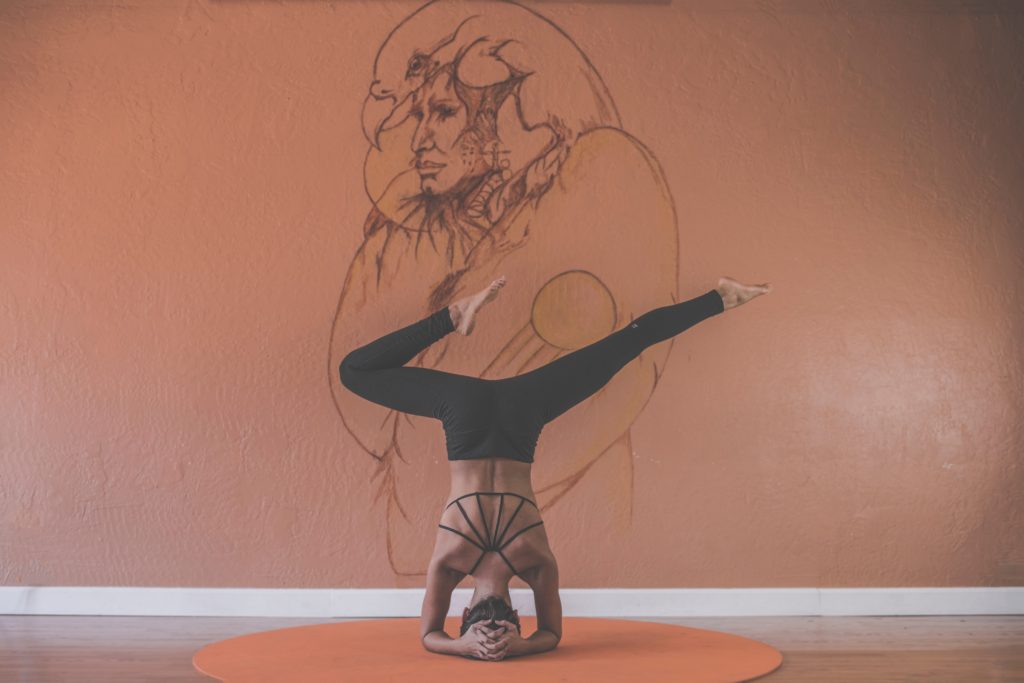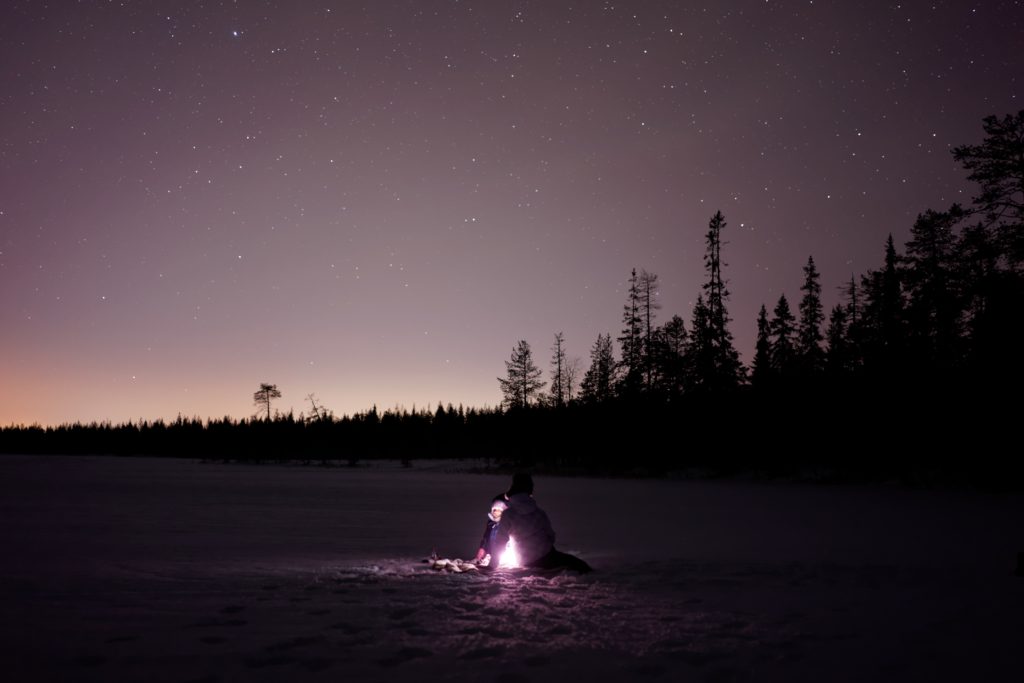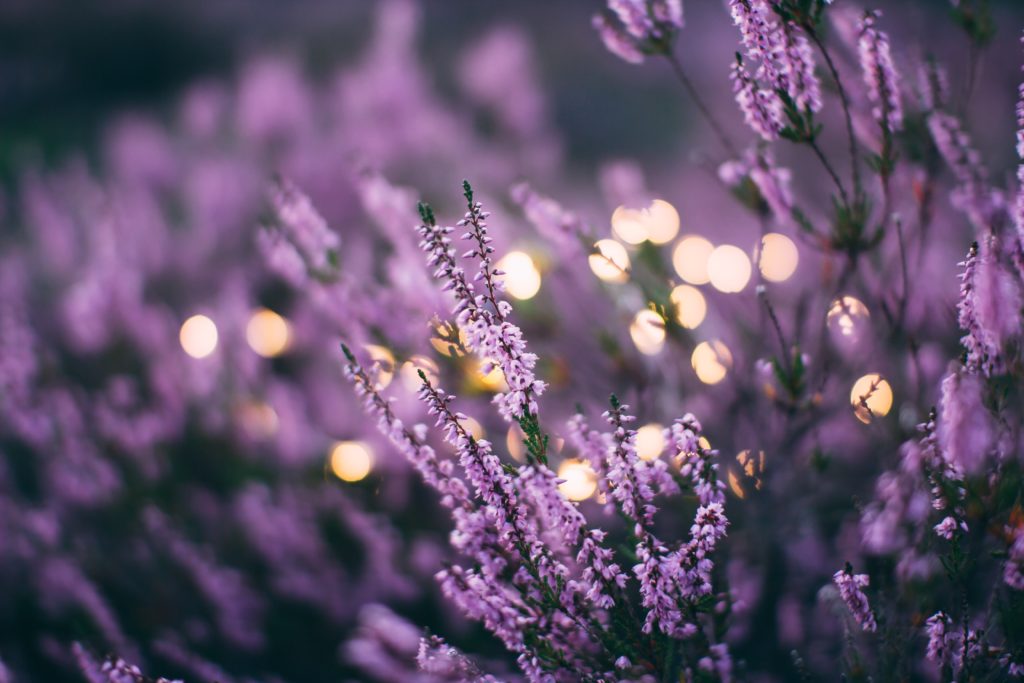“You are braver than you believe, stronger than you seem, smarter than you think, and loved more than you know.” – A.A. Milne
It seems to me right now we’re all being called to become our best selves. We’re being asked to stretch and grow in ways that are uncomfortable and unfamiliar. Milne’s quote reminds me so often I sell myself short and there is more courage, strength, intelligence, and love within me than I acknowledge.
There is some not-fun stuff going on in the world, as per usual, and the challenge for us is to rise to the occasion. For me personally, that means getting in touch with my inner power. Often I want other people to do the heavy lifting in my life. I want them to “fix me,” to “make me better,” to “have all of the answers,” or in some way allow me to play the damsel in distress. The place this shows up the most is with my health.
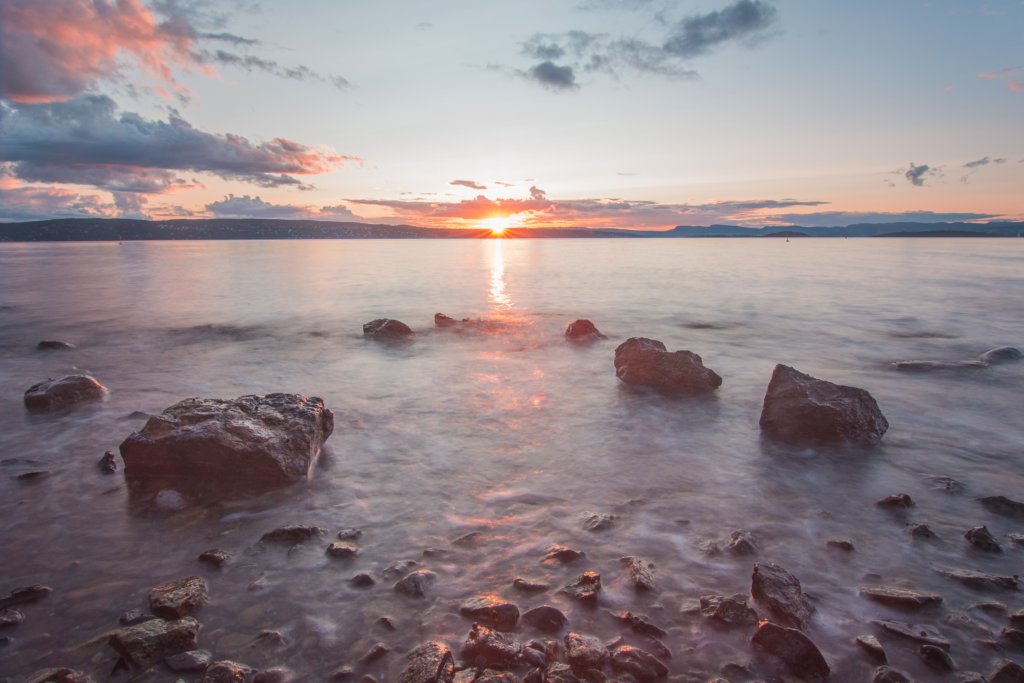
There’s more beneath the surface. Photo by Muhammad Shahzad on Unsplash.
I’m writing a long facebook note about everything my chronic illness has taught me, but for the purposes of this post I want to focus on empowerment. The dynamic that has shown up with my health is I approach doctors and healers not as partners in my path to wellness, not as people who help me to heal myself, but rather as wizards who will magically cure me without any effort on my part. I realize awe-inspiring stories of magical healing happen every day, and I so wish I could be one of those people, but thus far the universe has said to me, “Nah gurl, you gotta be your own hero and rescue yourself.”
I came to this conclusion after literally trying all the things Western and Eastern to heal my physical body and not seeing much in the way of results. A friend of mine posted about a book called Energy Medicine on Instagram and even seeing the title sparked curiosity within me to explore deeper. After the eclipse, an intense and passionate desire bubbled up within me to start reading the book. It’s a synthesis of all the modalities I have familiarity with – acupressure, energy meridians, chakras – and describes them in a practical way. The book explains why certain spots on my body are tender, or why I instinctively cradle my stomach. More importantly though, it’s empowering me to heal myself.
It’s early days, but even if I don’t see the results I’d like, it seems like a valuable lesson to remember I have power and magic within me. That I am capable of more than I think I am. That I don’t have to outsource everything to other people. This post is all about me, but the principle applies to the broader society as well. How many of us think what’s happening is “someone else’s” problem? Or that “someone else” will take charge? And how much of that is based on insecurity or inferiority?
My spiritual teacher says over and over again, “You should behave with every created being, every human being, in such a way that neither a superiority complex nor an inferiority complex develops in you, or in those with whom you interact. … A person must not suffer from an inferiority complex, because that person and his or her friends and siblings are all the progeny of the same Progenitor. They come from the same origin.”
That means I’m just as capable as anyone else. That means the same power within others is also within me. And vice versa.
I dream of a world where we recognize we all have inner power and strength. A world where we remember no one is superior or inferior to us. A world where we realize we are braver than we believe, stronger than we seem, and smarter than we think.
Another world is not only possible, it’s probable.
As of right now, at least four of my friends are pregnant. Also, within the past two months, four of my friends have given birth. Birth happens every day, but to have so many people around me ushering forth new life fills me with hope and optimism, which is sorely needed right now.
Much of the news is gloom and doom, making it easy to believe the world is terrible and people are awful, but when I think of these new beings coming onto the planet, my heart swells. By and large, each generation is more progressive, tolerant, and accepting than the last. There are exceptions of course, but the majority are heading in that direction.
The other thing that fascinates me is contemplating the effect each new child will have on the world. We never know who the next Einstein will be. Even if the kid isn’t an incredible genius, each new child will likely contribute to the welfare of society, at least in my circle of friends. I base this on my observations of their parents: Awesome parents usually raise awesome children.

I have no idea who this kid is, but they’re adorable. Photo by Carlo Navarro on Unsplash.
This post is not a profound one, but rather a grateful one. When I look around me and see new children, I fully believe the world will become better and is becoming better. It’s much harder to dismantle prejudice, cruelty, intolerance, etc. in people who’ve had years of training to think in such a manner, and much easier to teach a new generation to love right off the bat.
A quote by Nelson Mandela comes to mind: “No one is born hating another person because of the color of his skin, or his background, or his religion. People must learn to hate, and if they can learn to hate, they can be taught to love, for love comes more naturally to the human heart than its opposite.”
Newborn babies can be taught to love, which is their natural inclination, and that means many of the problems we’re experiencing today will slowly fade into history. My spiritual teacher said:
All genuine spiritualists will have to adjust with the level of the dusty earth inspired by the spontaneous love of their hearts. They will have to share the wealth of their developed intellects with others to lighten the sorrows and sufferings of humanity. Through their guidance and leadership, human thinking will take a new turn and move along an entirely new path. The latent spiritual power in human beings will be awakened. Through their effort and inspiration, the new people of a new generation will be armed with a bold new optimism and vision of the future, and march forward triumphantly.
When I see babies, I see a bold and bright new future, a triumphant march forward, and that’s something to get excited about.
I dream of a world where we recognize the forward march that’s taking place. A world where we celebrate the new lives coming onto this planet who are surely ushering forth a bright future. A world where we remember intolerance and injustice will eventually die out.
Another world is not only possible, it’s probable.
The other week I read an interesting philosophical treatise about the structure of our universe, which is an oval. We are made up of atoms with electrons moving around a nucleus. On a larger scale, the Earth is the nucleus and the moon is moving around it. In our solar system, the sun is the nucleus and all the planets are moving around it. According to my spiritual philosophy, there is a Supreme nucleus and we are all moving around it.
Is that Supreme hub a place we can get to? Can I jump into a rocketship and go see it? Is the Supreme nucleus instead a metaphor? I do not know the answers to these questions, but a friend commented on this discourse and said we are all emanating out from the same nucleus. We all have the same center, the same core.
His comment struck me because regardless of whether or not a person believes in a Cosmic Consciousness, or subscribes to my spiritual philosophy, we do have the same core. It is a fact we are all made up of atoms. It is a fact we are all made up of stardust, to paraphrase Carl Sagan. To quote an article on the subject:
“The carbon, nitrogen, and oxygen atoms in our bodies, as well as atoms of all other heavy elements, were created in previous generations of stars over 4.5 billion years ago. Because humans and every other animal as well as most of the matter on Earth contain these elements, we are literally made of star stuff.”
I’ve been hearing about this concept for many years so it’s easy for me to gloss over it, but something about thinking how we all have the same core got to me. It allows me to connect with you even deeper because inside we are the same, and knowingly or unknowingly, we are moving together. Some people are moving closer to the Supreme hub. I would say the Dalai Lama or Pope Francis are great examples of people who are moving closer to Cosmic Consciousness because they have a universal outlook. They seem to look upon others with a sense of oneness, that we are all connected, that there is no difference between them and someone else.
My spiritual teacher says, “Each and every aspirant, each and every artist, each and every scientist, and each and every philosopher must be ensconced in this supreme veracity – that they will have to be one with the Supreme, that each will have to coincide his or her microcosmic nucleus with the macrocosmic one.”
The speed with which this happens varies, and some people move further away from the nucleus, but no one can move beyond its scope. Even the most terrible person, even the most despised people are still circling the nucleus. They may be at the periphery, but they still have the same nucleus, and that means I can recognize those people, too, are my brothers and sisters. They, too, are on the spiritual journey with me and that means I can soften my heart toward them. Because we are all connected at the core.
I dream of a world where we recognize we are all made of the same things. A world where we recognize we all emanate from the same source. A world where we remember we are all connected at the core.
Another world is not only possible, it’s probable.
Last week, I wrote about the death of a colleague. In addition to grieving, I’m learning a lot about intimacy.
So often when I think about intimacy, it’s in the context of a romantic relationship, but the truth is, intimacy is not confined to a romantic partner. Real intimacy is like unzipping yourself and displaying your insides, and that can be done with anyone, something I’ve witnessed in this process.
As I share the news about my co-worker’s death, people react in different ways. Some people allow me to cry without offering a diversion or attempting to fix it. Other people become discomfited and say a quick, “I’m sorry,” before moving on to another topic. I’m not deriding people for their reactions – people are where they’re at and will respond how they do. What I notice though is in order to share my feelings with someone else, to be intimate with them, I have to acknowledge my feelings first. If I’m uncomfortable feeling sad, there’s no way I can share that with someone else because I’m shutting the feelings down internally. Someone else may be more than willing to share and connect with me, but if I’m not connected to myself, no one else can connect with me either.
We hear often, “You can’t give what you don’t have,” but I’m a concrete gal and I like examples. As an example, if someone asked me for oranges right now, I’d have to shake my head and say, “Sorry, I don’t have any.” Similarly, I can’t give intimacy if I don’t have it internally.
We think of intimacy and love as “out there,” something to find or force. I can’t tell you how many times I’ve complained about certain men in my life, lamenting that they’re not opening up, as if they were clams I could pry open. I’ve craved intimacy, but it’s only been within recent years I’ve created it internally by embracing all of my emotions. By giving myself space to feel.
Love and intimacy get presented as if we could walk into a store and buy them. We don’t realize intimacy is something we create, something we work on internally. I could be in relationship with the most amazing person, someone who loves intimacy, but if I’m not in touch with my own feelings, if I’m not allowing myself to feel them, we won’t have intimacy. It will be like talking to a brick wall. I say this because that’s also been my experience in grieving. When I share my insides with people who are discomfited, it’s like I threw an egg against a brick wall – my insides are smeared, on display. There’s no reciprocity, only impact. When I share my insides with people who are comfortable with emotion, it’s like I threw an egg at a cloud of cotton – I feel held, comforted, and supported.
Matt Licata, a psychotherapist I follow, synthesizes this concept well:
When all is said and done, perhaps there is no secret to co-creating a fulfilling, supportive, mutually beneficial intimate relationship, as it is always in the end a movement of the unknown. Healthy intimacy is not something you will figure out one day by way of some checklist or magical formula, but something you are asked to live in each moment, in all its chaotic glory. By learning to take care of yourself, you are creating a foundation upon which the mysteries of intimacy can come alive within and around you, providing a crucible like no other for the great work of aliveness that you have come here to embody.
I dream of a world where we embody our emotions. A world where we understand intimacy is not something “out there,” but rather “in here.” A world where we recognize intimacy is not something we find, but rather something we create. A world where we realize intimacy beings with us.
Another world is not only possible, it’s probable.
I detest the saying, “There’s no such thing as an original idea. Every idea worth having has been had thousands of times already.” Funnily enough, I can’t find who to attribute that statement to. Does that make the notion itself unoriginal because it doesn’t belong to one person? Moving on. . .
I loathe the concept there are no original ideas because I long for recognition and credit. If I have an idea, I want people to attribute it to me, and I get upset if someone else has the same idea independent of me. Childish, I know, but there we are. When I think about my spiritual philosophy though, things make more sense.
One metaphor that’s been used in my spiritual philosophy is God is like the moon and each of us are like mirrors, reflecting the moon. We all have the same original image, but how it shows up on our mirrors is different. Some mirrors are speckled or cracked. Some mirrors are cloudy or clear. The originality, the origin, if you will, is the moon, but the way the moon is reflected in the mirror is unique.
When looking up the attribution for the no-original-ideas concept, I stumbled across a quote from Mark Twain that fits. He wrote:
There is no such thing as a new idea. It is impossible. We simply take a lot of old ideas and put them into a sort of mental kaleidoscope. We give them a turn and they make new and curious combinations. We keep on turning and making new combinations indefinitely; but they are the same old pieces of colored glass that have been in use through all the ages.
We human beings are like that – we keep making new and curious combinations. My work is to understand just because we keep using the same old pieces of colored glass, doesn’t mean the new combination is any less valuable or beautiful or worthy.
Someone told me once, “There may be a thousand youtube videos out there about how to make a green smoothie, but mine may be the one a particular person sees that encourages them to actually make it.”
Bottom line for me is it’s likely I’ll say the same thing someone else says or vice versa, but it doesn’t mean I should stop saying it because I am a unique and special, individually crafted mirror full of interesting speckles and discolorations reflecting the moon in a certain way. I am a kaleidoscope of colors. We all are.
I dream of a world where we understand we may never be the first or last person to say or do something, but that doesn’t mean our contribution is any less valuable. A world where we understand we are reflecting the same thing, but the way the reflection appears is unique. A world where we embrace we are all kaleidoscopes.
Another world is not only possible, it’s probable.
Lately I find myself wading deeper and deeper into the realm of emotion. That may sound funny because people often describe me as “emotional,” but what I mean is instead of flirting with an emotion, I’m embracing it. The despair, the anger, the disappointment. All of it. Not only am I embracing my feelings, I’m also no longer trying to fix them.
For me, whenever I felt really down, or lonely, for instance, I turned to something to make myself feel better: I called a friend, turned on the TV, picked up a book. I’m not saying there’s anything wrong with those activities, but they became compulsions, ways for me to avoid diving deep. To avoid the emotional pain of fully embodying my emotions. These days I’m learning to sit with my feelings, no matter what they are.
Matt Licata, a psychotherapist, has a blog I read every couple of weeks. In one blogpost he wrote:
[T]he question during these times is: Are you going to use these reorganizing and shattering experiences as vehicles though which to befriend yourself, to attune to the unprecedented flow of feeling with you, and to weave a sanctuary for the wisdom-pieces of the broken world to be held and illuminated? Or, will you fall back into your habitual, conditioned history, attack yourself, your tenderness, and your sacred vulnerability, spinning into the habitual fight-flight urgency of shame, blame, resentment, and self-aggression?
In another he wrote:
The invitation is into intimate communion: to move closer, and even closer still, into the feelings, the emotions, and the sensations as they surge. To surround the surging material with curiosity, warmth, and most importantly with kindness, as an inner explorer of the galaxy of your own body, of which there is no temple more sacred.
Communion. Yes, that’s what I long for. And communion means befriending my pain, befriending my sorrow, befriending my disappointment. Every cell of my being longs for love, and that means the pain, the sorrow, and the disappointment too. In my journey toward wholeness, toward the divine, I must embrace everything within me.
In my spiritual practices, we view everything as an expression of an infinite loving consciousness, and that means me too. Not only the me in this physical form, but the internal me as well. The one that feels pain, the one that feels lonely, the one that feels disappointment.
These days I’m practicing loving those parts too and I have that wish for others as well.
I dream of a world where we embrace all parts of ourselves. A world where we feel every emotion as it arises. A world where we sit with our pain because we recognize it, too, is divine.
Another world is not only possible, it’s probable.
The other week I posted a news story on facebook with commentary that I have compassion for robbers and the robbed, and was met with so much vitriol it astounded me. People I didn’t know called me a moron (and worse), told me to get off of facebook, etc. What I heard over and over again was, “I’m poor and I’ve never robbed anyone.” That’s great! I’m glad there are poor people that don’t rob others. Keep not robbing.
What strikes me is how me-centered that viewpoint is. There is an inherent expectation that we all act a certain way, but guess what? We don’t. And placing so much onus on the individual doesn’t work. I’m reminded here of the recently passed healthcare bill in the House of Representatives. The terms of the bill are ludicrous in my opinion. “Have you ever been sick? Are you a woman? So sorry, no healthcare insurance for you or you’ll have to pay staggering premiums. Good luck with that.”
Indian philosopher and economist P.R. Sarkar said, “Rich people do not want to consider the needs of the poor, because if they do, they will have to make some sacrifices. Where will their luxuries and comforts come from if hunger does not burn the bellies of the poor?” Our capitalistic society encourages this mindset, encourages us to look out only for ourselves, and try to scramble to the top of the heap by declaring, “I worked hard for this so I earned it!” Yes, but that means the suffering of others continues. It’s easy to dismiss, to say the people in that position just didn’t work hard enough, or try hard enough, or act the right way, or whatever. There are a thousand excuses we could give.
Sarkar said, “[T]o admit that these sufferings are the result of social injustices implies that everyone is responsible.” And that’s the thing, we are all responsible. We are all responsible for each other. The human family includes everyone. I’ve quoted this African proverb before, but it’s pertinent so I’m quoting it again: “If you want to go fast, go alone. If you want to go far, go together.”
I want to go far. I long to go far. How do we do that? What can little ole me do from her apartment here in California? It sounds cheesy as all get out, but one of the answers is love. I’ll close with another quote from Sarkar:
Like any other problem, great or small, there is only one way to solve economic problems, and that is through genuine love for humanity. This love will give people guidance; it will show them what to do and what not to do. It is not necessary to study great numbers of books or to rely upon those who speculate with the future of the silent masses. The only essential requirement is to look upon humanity with genuine sympathy.
I may not be a politician, I may not be an economist or a philanthropist or a CEO, but I sure as heck can love humanity. I can have compassion and sympathy and empathy for those around me. I can keep loving people even through their missteps. I can keep spreading love and embodying love and talking about love even when people call me foolish. And I will.
I dream of a world where a genuine love for humanity is awakened in all of us. A world where we all look out for each other. A world where we understand our progress is linked to those around us. A world where we understand the human family includes everyone and we act accordingly.
Another world is not only possible, it’s probable.
I’ve been thinking a lot about strength and power and what it means to have those. I spend most of my time feeling powerless, as in my ability to act feels diminished. Particularly when I contemplate the broader society. This is where I could write about how there’s strength in numbers and all of us working together have greater power than when we’re alone, but you’ve already heard all that. Instead, what interests me more is thinking about the types of strength and power we possess.
As someone who feels like a frail wildwood flower, physical strength appeals to me. However, physical strength is not the greatest strength there is. On some level we all know this, but in times like these I think it’s important to get that reminder. Psychic strength is greater than physical strength, and spiritual strength is greater than psychic strength.
If we look at human history, we see this progression. People could not fight a lion or tiger with their physical bodies – they had to invent weapons. Even if we pit an elephant against a human being we see an elephant driver can use their intellectual powers to direct the elephant. Physical strength can be defeated by psychic strength. In fact, my spiritual teacher says human strength is much more powerful than the strength of atom bombs. Why? Because human beings created atom bombs and that means human beings can also discover a weapon to counteract the strength of atom bombs.
What about spiritual power? For me, I believe in a higher power so it makes sense there is a power greater than myself infusing me with strength. An entity that may accomplish what I cannot. It’s harder for me to think about spiritual strength triumphing over psychic strength, but when I contemplate it, it makes sense. In a competition between me and an enlightened being like the Buddha, who would win? Certainly not me. An enlightened being knows all and sees all, so of course an enlightened being is more powerful than I am.
I also think about this in my personal life. How my intuition picks up on things that my rational brain does not. That, too, is a power. If I intuit during a game of rock, paper, scissors that you’re going to choose rock, who has the power in that situation? Who is at an advantage?
Ultimately what I’m driving at here is we are never as powerless or as helpless as we think we are. We all have strength and we have strength we didn’t know we had when we draw on the well from the source of all creation. When I tap into an infinite loving consciousness, my strength, my power never runs dry. I’ve heard many amazing stories like that. For instance, Sri Chinmoy is someone who lifted airplanes and automobiles. He said:
“As an individual I am nothing and I can do nothing. For everything that I have achieved, I give 100 percent credit to God’s Grace…when I pray and meditate I feel that somebody else is helping me, whereas an ordinary man feels that he can only rely on himself. When he is under the weight, he thinks that he is lifting it all by himself. He has practiced for so many years and developed his strength and he feels that everything depends on his physical strength. But in my case, I feel I am only an instrument. There is some other power that is coming to help me. That power I call God’s Grace.”
I dream of a world where we remember we are mighty. A world where we remember we are more powerful than we think we are. A world where we tap into the reserves of a power greater than ourselves, recognizing that’s where our real power lies.
Another world is not only possible, it’s probable.
Fear seems to be running rampant in the U.S. these days. Fear of the future, fear of other people. As Elizabeth Gilbert says, the Land of the Brave has become the Land of the Very Anxious. I get it.
We all want to survive. In days past, people settled near water to have materials for that purpose. These days, people move to where there are jobs for the same reason. We all want to survive and we will fight for our survival. When there is a perception security is threatened, people retaliate. By instating a ban on all Muslims for instance. The thing is though, just as my life is important to me, others’ lives are equally important to them.
“[I]f we do not give proper value to the lives of all creatures, then the development of the entire humanity becomes impossible,” says philosopher and social revolutionary P.R. Sarkar. “If people think more about themselves as individuals or about their small families, castes, clans, or tribes, and do not think at all about the collectivity, this is decidedly detrimental …. It will help people understand that human beings, as the most thoughtful and intelligent beings in this created universe, will have to accept the great responsibility of taking care of the entire universe – will have to accept that the responsibility for the entire universe rests on them.”
We’re caretakers for the entire universe. No big deal or anything. I’m pretty sure some people have forgotten that concept though. They’ve forgotten we all belong to each other, that my self-preservation is tied to your self-preservation.
All week, the phrase running through my mind has been intuitional practice is the process of transformation of fearful love into fearless love. I can’t help but think that’s what we’re undergoing collectively. We are in a state of fearful love – scared of making one wrong move because then we’ll lose something. Scared if we don’t do something, we won’t keep what we have. In the U.S., it seems to me some people are operating under the assumption that in order for our country to be great, we have to keep out all things we fear, all thing we perceive threaten our self-preservation, our security.
An extremely hard lesson I’ve learned over the years – which you all have been privy to – is security comes from within. There was one point I lived literally in the middle of nowhere – I’m talking a cabin in the woods 20 miles from the nearest town – and I still had an intense fear my place would be broken into. Security is an outside job but it’s also an inside job. There is no place we can go that will keep us 100 percent safe and secure. There is no ban on a group of people that will prevent us from being threatened. Building a wall to keep people out can just as easily turn into a prison keeping us trapped.
Living in fearful love is not the answer. The answer instead lies in cultivating fearless love, in reaching out to our brothers and sisters in need. In creating a society where everyone is taken care of. Where no person is left behind because we recognize the responsibility for the entire universe rests on our shoulders. Ultimately, we are all in this together.
I dream of a world where we all take care of each other. A world where we recognize every person’s life is just as important to them as ours is to us. A world where we cultivate inner security. A world where we move from fearful love to fearless love.
Another world is not only possible, it’s probable.
